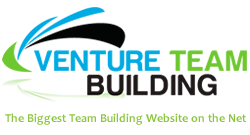Would you like to transform your team from good to great? Would you also like to cut some costs along the way? We previously discussed the fact that trust is one of the consistent characteristics among high – performing teams. Trust is often mentioned in our personal relationships, but it is common for organizations to overlook the power of trust in the workplace. Fostering a great sense of trust in your team can lead to a direct impact on your organization’s bottom-line.
Organizations that excel in fostering trust can reap many rewards, including a direct reduction of costs. These organizations see increased productivity and a reduction in the time it takes teams to make decisions. Colleagues trust the judgement of one another so strategic decisions move quickly and efficiently. Teams with trust also work more efficiently as a unit as opposed to duplicating their efforts as individuals. Ready to foster trust in your team or organization? We’ve compiled a list of four foundational areas you can focus on to begin to build trust. In a leadership position? We even included a few simple tactics that you can implement right away!
- Transparency – Trust begins with transparency. It is crucial that teams are informed, and that communication is open and honest. Leadership should consistently inform teams of both progress and results (including financial results). Keeping progress and results from your team can build fear and uncertainty. Trusting your team with information and being fully transparent with the results of their efforts is one of the first steps to building trust and a sense of security.
*Leadership Tip: Be transparent with your team regarding your own mistakes. When individuals are afraid to make mistakes, they may limit themselves and their abilities by acting out of fear. Owning personal and company mistakes demonstrates to the team that mistakes are okay. Lead by example and use mistakes as learning opportunities for both yourself and the team to improve moving forward.
- Respect –Actions speak louder than words and to build trust it is important to demonstrate respect through action. One simple way to demonstrate respect is to respect the time of the team. If you set a time for a meeting, be sure both the team and the leadership are showing up on time and prepared. If you create an agenda for the meeting, stick to it and end the meeting on-time. It is also important to stick to deadlines. Keep yourself and your team accountable. When a team does not respect things such as basic deadlines and time constraints, accountability and trust can both be diluted.
*Leadership Tip: Respect your team by eliminating gossip. When gossip and in-direct side conversation begin, a lack of respect is demonstrated. In turn trust diminished and silos can form. Instead of entertaining gossip amongst your team, take a direct approach in your communication and lead by example. Respectful communication that addresses issues directly will build trust among your team.
- Empowerment– When a leader consistently gives away authority and empowers their team, their delegation displays trust in the teams’ judgement and abilities. In addition, when a team feels trusted and is a part of the decision-making process, the team becomes invested in the outcome on a deeper level. Empowerment can lead to more productive, efficient, and higher-level work.
*Leadership Tip: Seek and remain open to the ideas and suggestions your team has to offer. Solicit feedback and suggestions frequently and be sure to truly listen to the suggestions you receive. Implementing the ideas and suggestions of your team will build trust and often lead to great ideas that you may have not developed on your own.
- Make it Personal – You can’t build trust without personal interaction. Teams need to get to know each other personally to trust one another. Brief daily water cooler chats or weekly team huddles can be helpful in building and maintaining trust. Setting aside regular time for face-to-face interactions helps to build personal relationships and trust among a team.
*Leadership Tip: Lead with an open-door policy. When teams have access to their leader trust is formed. As a leader, make a conscious effort to build the relationships with your team. Demonstrate that you care about them as individuals. Check in to ask how they are doing, is their work load manageable, do they need any additional resources. Small actions like these can go a long way in forming great working relationships.
Now that you have four areas to concentrate on, we encourage you to implement the tips in your own organization. Fostering a great sense of trust will create an environment where your team members are able to rely on one another. Not only will the team begin to hold themselves and each other accountable, but they will feel comfortable to communicate directly, openly, and honestly with one another. An environmental shift to a culture of trust can greatly reduce the costs associated with wasted time and duplicated efforts. These small actions could have a major impact on your team moral and your organizations’ bottom-line!




